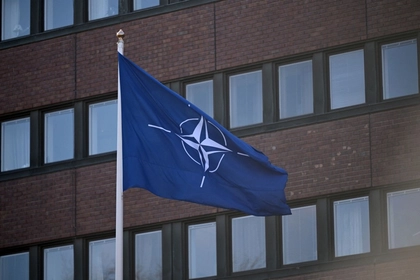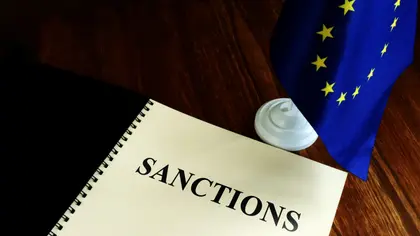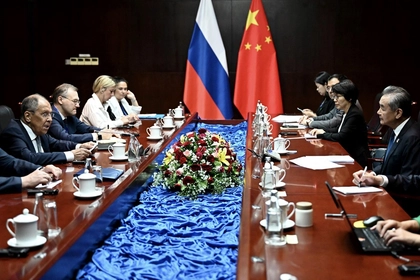Russian trucks are banned from Europe and Russians won’t be able to buy electric vehicles at home as a result of Europe’s latest round of sanctions.
Yesterday, the EU adopted its 11th package of sanctions against Russia in response to its continuing full-scale invasion of Ukraine.
JOIN US ON TELEGRAM
Follow our coverage of the war on the @Kyivpost_official.
“This package will ensure that EU sanctions against Russia are even better enforced and implemented, based on the lessons learned from implementation over the past year,” the European Commission (EC) said.
The new package includes these key elements:
· New techniques to block Russia from circumventing existing sanctions via third countries;
· Export bans on a further 15 technological items used on the battlefield in Ukraine;
· Requirements for importers of iron and steel goods from third countries to prove that the material used did not come from Russia;
· Extension of the ban on the export of luxury cars of all new and second-hand cars with an engine size greater than 1.9 liters, and to all electric and hybrid vehicles;
· A full ban on Russian cargo trucks with trailers and semi-trailers from transporting goods to the EU;
· Prohibition on access to EU ports for vessels that engage in ship-to-ship transfers suspected to be in breach of the Russian oil import ban or G7 Coalition price cap;

Russian Drone Debris Found in Romania, NATO Says No Sign of Intentional Attack
· End of the importation of Russian oil by pipeline to Germany and Poland,
· Extension of the media ban to 5 additional Russian channels.
Additionally, another 100 individuals and entities were made subject to freezing of their assets.
The list includes senior military officials; decision makers on activities related to the war; persons involved in the illegal deportation of Ukrainian children to Russia; judges who took politically motivated decisions against Ukrainian citizens; persons responsible for the looting of cultural heritage; businesspersons, propagandists, and Russian IT companies that provide critical technology and software to the Russian intelligence services; banks operating in the occupied territories; and entities working with the Russian armed forces.
Resources for Ukraine’s Rebuild
Some 1500 individuals and entities associated with Russia’s war on Ukraine have now had their assets, worth some $22 billion USD, frozen by the EU.
Assets of the Russian Central Bank currently frozen by the EU, G7 countries and Australia now sees $327 billion locked up, which represents about 70% of all of Russian banking assets.
Ukraine’s Prime Minister Denys Shmyhal told the Ukraine Recovery Conference last week in London that these frozen assets should be a ready resource for reconstructing Ukraine from the destruction caused by Russia. The EC’s President, Ursula von der Leyen, told the conference that Europe is currently developing a proposal on how such an approach might work.
The World Bank estimated Ukraine’s rebuilding costs to be at $411 billion, prior to the June 6 destruction of the Kakhovka dam and power plant.
Do Sanctions Work? It Depends.
European officials believe that sanctions have been effective in limiting Russia’s capacity to wage war. They point to a series of economic indicators that show measures taken by Europe and others against Russia have had an impact on the Russian economy.
According to the World Bank, the International Monetary Fund (IMF) and the Organisation for Economic Cooperation and Development (OECD), 2022 was a bad year for the Russian economy. It is estimated that in 2022, Russia’s gross domestic product (GDP) dropped by 2.1%.
Russia’s economy may continue to shrink in 2023. Its GDP is forecast to decline by 2.5% in the worst-case scenario (OECD) or by 0.2% according to the World Bank.
While in the first half of 2022, Russia benefited from growing prices of fossil fuels on global markets, sanctions targeting oil imports that came into force in December 2022 have limited Russia’s revenues in this area.
According to the International Energy Agency, Russia’s oil revenues dropped by over a quarter in January 2023 (compared to January 2022). The drop in February was even more significant - over 40%.
Other entities and commentators are not as bullish on the success of sanctions, noting that it “depends on their objective”.
“While Western-led sanctions may be eroding Russia’s economic base, they have not come close to persuading Putin to reverse his policy,” writes Richard Haass, President of the Council on Foreign Relations, an independent US think tank.
According to PBS, an American public broadcaster, analysts say Russia is a particularly difficult target given its importance as an exporter of many crucial commodities, including oil, fertilizers, wheat, and precious metals, as well as the reluctance or total refusal of some countries to abide by the sanctions regime.
India, for example, has seen a sixteen-fold increase in oil imports from Russia since the invasion began, while its total bilateral trade with the country has more than doubled.
You can also highlight the text and press Ctrl + Enter






